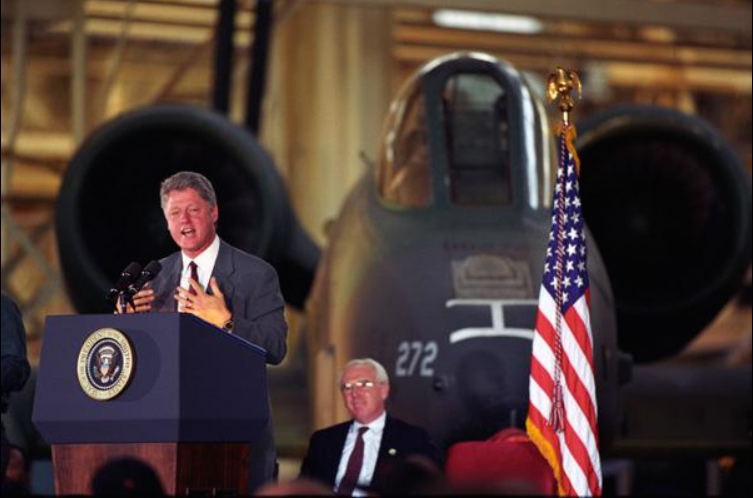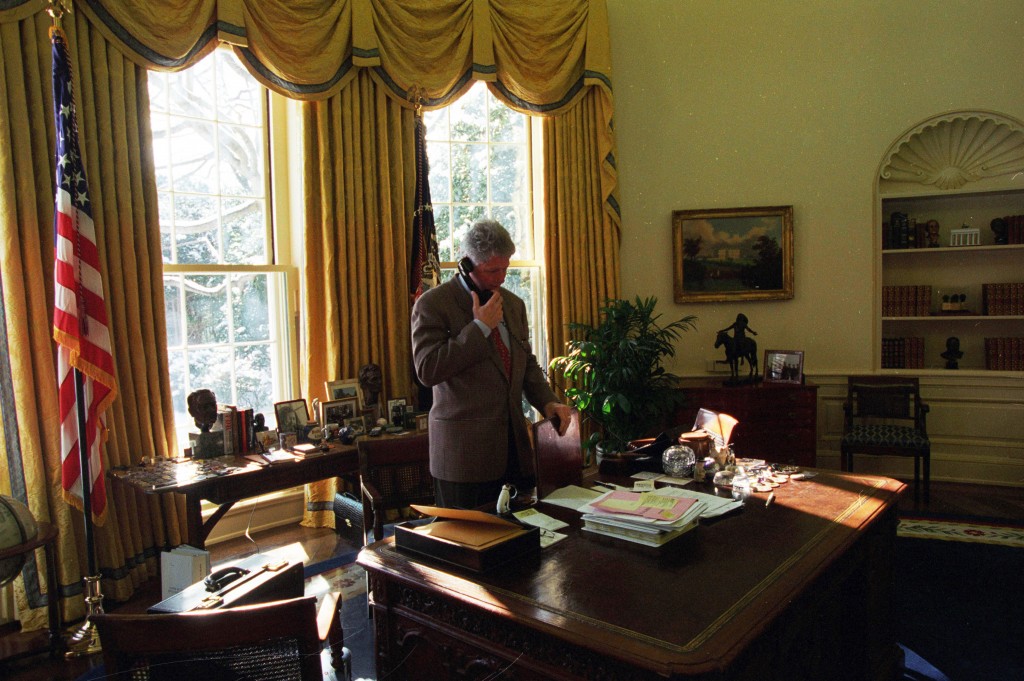This summer, I had the opportunity to assist Professor Robert K. Brigham with research for his contracted book, which will examine the Clinton administration’s response to mass atrocities and humanitarian intervention. I began my research by focusing on President Clinton’s response, or lack of response, to the 1994 Rwandan genocide – a conflict that devastated Rwanda and resulted in the estimated death of 800,000 to 1 million Tutsis and pro-democracy Hutus. This research was most interesting because it revealed how an administration transitioned from originally supporting humanitarian intervention and multilateral cooperation, especially with the United Nations, to an administration that sought to block U.N. attempts to strengthen the United Nations Assistance Mission for Rwanda (UNAMIR). Most striking, I was shocked to discover the efforts that the administration undertook to deny the genocide, such as instructing U.S. Department of State spokesperson, Ms. Christine Shelly, to use the term “acts of genocide” instead of “genocide” to avoid having to intervene under obligation to the 1948 Convention on the Prevention and Punishment of the Crime of Genocide. By researching President Clinton’s response to Rwanda, I also became more aware of the relationship between the administration and the United Nations, specifically through U.S. Ambassador Madeleine Albright. By analyzing primary documents, such as international reports, U.S. Department of State reports, memos, and unclassified confidential cables, I have come to better understand the inner-workings and complex domestic, Congressional, and international pressures exerted upon the Clinton presidency.

President Clinton Addressing an Audience at the McClellan Air Force Base in October 1993. Photograph courtesy of the U.S. National Archives.
However, from discussions with Professor Brigham, it became clear that the next question to ask was: What caused the Clinton administration to be so hesitant to intervene in Rwanda? From my findings, it has become evident that President Clinton’s reaction encompasses several decades of U.S. foreign policy that fears intervention and stems from America’s failure in the Vietnam War. The U.S. learned several lessons from the Vietnam War that include: a need for clear and achievable objectives, Congressional and public support, the need for a focus on human rights, and that a successful military strategy requires an immediate, not gradual, attack. In addition to these lessons, presidents following Vietnam were forced to deal with a distrust of civilian leadership that emanated from the military and made the military more hesitant to support political objectives abroad. It was extremely interesting to research how each president dealt with the public’s new dislike for foreign intervention, such as President Carter who emphasized human rights and President Reagan who utilized a realist interpretation of the Vietnam War to restore American confidence in its foreign presence. Surprisingly, I found my research regarding changes to the military since the Vietnam War to be extremely interesting, such as the Goldwater-Nichols Defense Reorganization Act of 1986 that reorganized the Department of Defense and promoted the Chairman of the Joint Chiefs of Staff to the role of primary military advisor to the president. Additionally, the Act mandated that the Executive Branch submit an annual National Security Strategy Report, which became a useful primary source for understanding an administration’s foreign policy outlook. Ultimately, from my research, I concluded that despite the growing confidence of the U.S. in foreign intervention (from the Reagan administration and primarily the success of the First Gulf War), the U.S. military’s humiliation in Somalia during the United Nations Operation in Somalia (UNOSOM) II caused memories of Vietnam to return to the minds of many citizens, including President Clinton. Thus, a year after UNOSOM II and with the publication of Presidential Decision Directive 25, which revealed the United States’ more selective approach to peacekeeping operations, President Clinton was paralyzed by fears of foreign intervention and unable to responsibly intervene in Rwanda.

President Bill Clinton in the Oval Office in January, 1995. Photo Courtesy of the William J. Clinton Presidential Library
This research opportunity not only expanded my understanding of U.S. Foreign Policy and the pressures that administrations face, but it also furthered my interest in humanitarian intervention. From this opportunity to work as a Ford Scholar, I now hope to expand upon my research in a senior thesis and, eventually, continue my interest in humanitarian intervention through post-graduate work.
